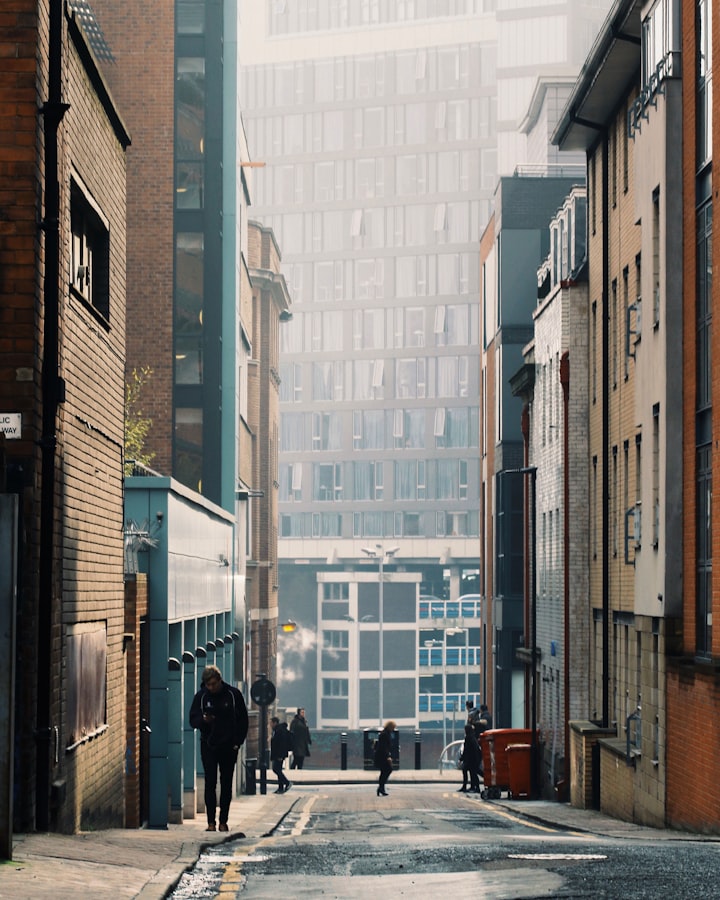Was it fair to tell students to come back to university?
2020 continues to be awful, and now it's students who are in the thick of it.

Care homes and hospitals were the eye of the media-storm when the first wave of coronavirus hit the UK, but universities and students have been at the heart of the controversy surrounding this second wave.
The whole situation is a mess of blame, tangled up with students’ freedom, the fairness of the fees we pay, and why (despite the countdown to term ticking away all summer) universities have failed to put preventative and protective measures in place before students returned to study.
Deliberately Vague?
I arrived back in Sheffield over three weeks ago to begin my fourth and final year of undergraduate study. The university sent out two, perhaps three, emails over the summer. Each time I expected information about Sheffield’s plan to keep the student body and staff as safe as possible. But each time, the email was long and vague, promising ‘blended learning’ and staggered lecture times. It seems other universities up and down the country were being just as ambiguous.
Naively, I wasn’t concerned. I assumed each department would have a different approach which would be confusing to summarise in an email sent to over 27,000 students. Why would they organise labs for biochemists according to the same rule as lectures for economists?
But no departmental email came. Not until right before the start of term, telling us at the final hour that all seminars and lectures would - provisionally - take place online. Personally, that suited me just fine, and I had been nervous about the concept of being inside for long periods of time, with a group of students who could have been up to anything, anyway.

But that isn’t the issue. The issue is that the majority of university students in the UK feel that they have been deliberately misled and frankly, I have to agree. The government gave the go-ahead for students to return to their university towns - something that experts have been warning about for months. But let’s be honest: you don’t need to be an expert to see that the mass migration of the country’s youth to urban centres was always going to be problematic in the middle of a pandemic. The fact that students are now being blamed for the second wave feels like insult on top of injury. Universities misled students (especially first-years) with unclear and unrealistic intentions. Even if they had good intentions, face-to-face classes aren’t happening and the consequences are colossal.
Why the obsession with face-to-face?
In a recent email the University of Sheffield wrote that “students [had] told [them] about the benefits of face-to-face teaching”, defending their continued determination to get students on-campus. Whilst I’m glad that they’re listening to the student body, now just simply isn’t the time for in-person seminars and lectures, and the majority of students understand that. For many courses (including my cultural and language based one), online learning works just fine. It’s not ideal, but we’d rather that, than facilitate the spread of Covid-19 through the student community, and into the wider population.
Of course, there are other courses for which contact hours are far more vital (say, science and medicine based courses), and to this I ask, why isn’t the university prioritising these crucial degrees? Not only is the university failing to do what it claims it wants, but this blinkered approach of “F2F for all!” disproportionately affects the education of those dependent on contact hours, when many humanities courses can take place virtually with little effect on teaching quality. In fact, one of my language teachers even said he found online learning to function better than face-to-face in some respects. The university claims to be listening to students, but their decisions and approach is chaotic at best, harmful at worst.
So what is this all about? Many have cynically suggested that this new obsession with in-person teaching has all been a ruse to get freshers into halls, and rent into the university’s pocket. This comes across as rather conspiratorial to me, but I can hardly dismiss it given the current situation. Thousands of students who could have carried out their degree virtually from family homes have been pressured into moving into halls, which have since become harmful to their mental and physical health.

Students are trapped
I feel extremely fortunate to be privately renting. My household is just finishing off a period of self-isolation following contact with someone who later tested positive for Covid-19. We had the support of friends, and were able to get an online food shop delivered. But for freshers who are living alone for the first time in a new city, self-isolation could be a very dangerous situation. Some universities have posted security outside accommodation and literally trapped their students in. Shopping slots aren’t always available, and university caterers have been accused of capitalising on this by selling nutritionally barren foods at hugely inflated prices to their (literally) captive market.
Just imagine moving into halls for the first time this year. Along with all the normal fears and stress of making friends with your coursemates and adjusting to this new lifestyle, there’s the inevitability of someone in your block of flats contracting coronavirus and locking you in your apartment indefinitely. If you’re lucky and your flatmates are responsible, this could mean remaining inside and seeing no one, using the kitchen and bathroom alone. And if you’re unlucky and your housemates don’t behave responsibly, you may find your physical health being put on the line. There’s a general belief, that because the death rate amongst younger people is lower, we are at less of a risk. This is definitely misleading, and shockingly insensitive towards the wellbeing of a whole demographic. Aside from the fact that countless students will have pre-existing conditions that put them at risk, the long-term effects of Covid are still largely unknown, and emerging research suggests they could be terrible. Reports of otherwise healthy young people who continue to suffer from fatigue and other symptoms after contracting the virus are building daily. On top of that, allowing Covid-19 to wreak havoc through student populations only increases the speed with which it is transferred to the older and more vulnerable in our society. Our wellbeing is linked to the wellbeing of others.

So we see that students (and I emphasise, especially first years and those vulnerable for other reasons) are being exploited on several fronts. They are physically trapped in a dangerous environment, they are paying rent on accommodation which they either can’t leave, or can’t stay in, and their health is being put at risk. Can it get worse? Of course it can.
The hidden epidemic
This is what perhaps scares me most about this whole situation. The danger to students’ mental health. Under such extreme pressure, isolated in a new environment, it is the most natural thing in the world for mental health to decline. As we know, mental illness can be devastated. Whilst UK universities generally have support available, for students isolating because of Covid-19, support must seem more distant than ever. Universities shouldn’t just be fussing over their Covid statistics - they need to keep a keen eye on their students’ mental wellbeing to prevent an equally deadly epidemic of mental illness.
In a word of defence, after contacting my university to inform them I would be self-isolating they provided me with an extensive list of available support. Many universities have welfare officers checking in on those who are locked down. But surely prevention would have been better than this desperate attempt at a cure?
I can’t shake the feeling that it’s too little, too late. Students needed clear information before the start of term. Support for longer-term distance learning should have been implemented for the countless students who live abroad, have pre-existing medical conditions, or simply can’t afford university rent in a pandemic. Perhaps if universities had been upfront and filling to sustain a short-term financial loss, then we wouldn’t have had entire student communities trapped in their halls.
About the Creator
Alissa Mann
Linguist, explorer, food lover
Photographer-in-training






Comments
There are no comments for this story
Be the first to respond and start the conversation.